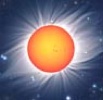The new Nature paper that prompted yesterday’s post on rainfall intensity is covered in detail by the BBC and New Scientist. Rainfall patterns around the globe are shown to be changing in response to increasing greenhouse gases, in line with model predictions. From New Scientist:
Tropical regions north of the equator, including such areas as the Sahel in Africa which borders the Sahara desert, have already begun to get even drier and will continue to do so, the data show. Regions in the far north, including Canada, Northern Europe and Russia, will get wetter, as will the southern tropics.
The magazine also quotes the paper’s lead author, Francis Zwiers of the Canadian Centre for Climate Modelling and Analysis in Toronto, on changes in rainfall intensity:
Zwiers says an important message from the combined models is that they consistently show that, for all regions, there will be a significant increase in extremes of precipitation – both floods and droughts. Thus, even desert areas that will undergo serious drying could simultaneously suffer greater risks of flash flooding. “More or less uniformly across all the models, these extreme events will become more intense just about everywhere,” he says.
Time to reassess flood risks in NZ, perhaps.



